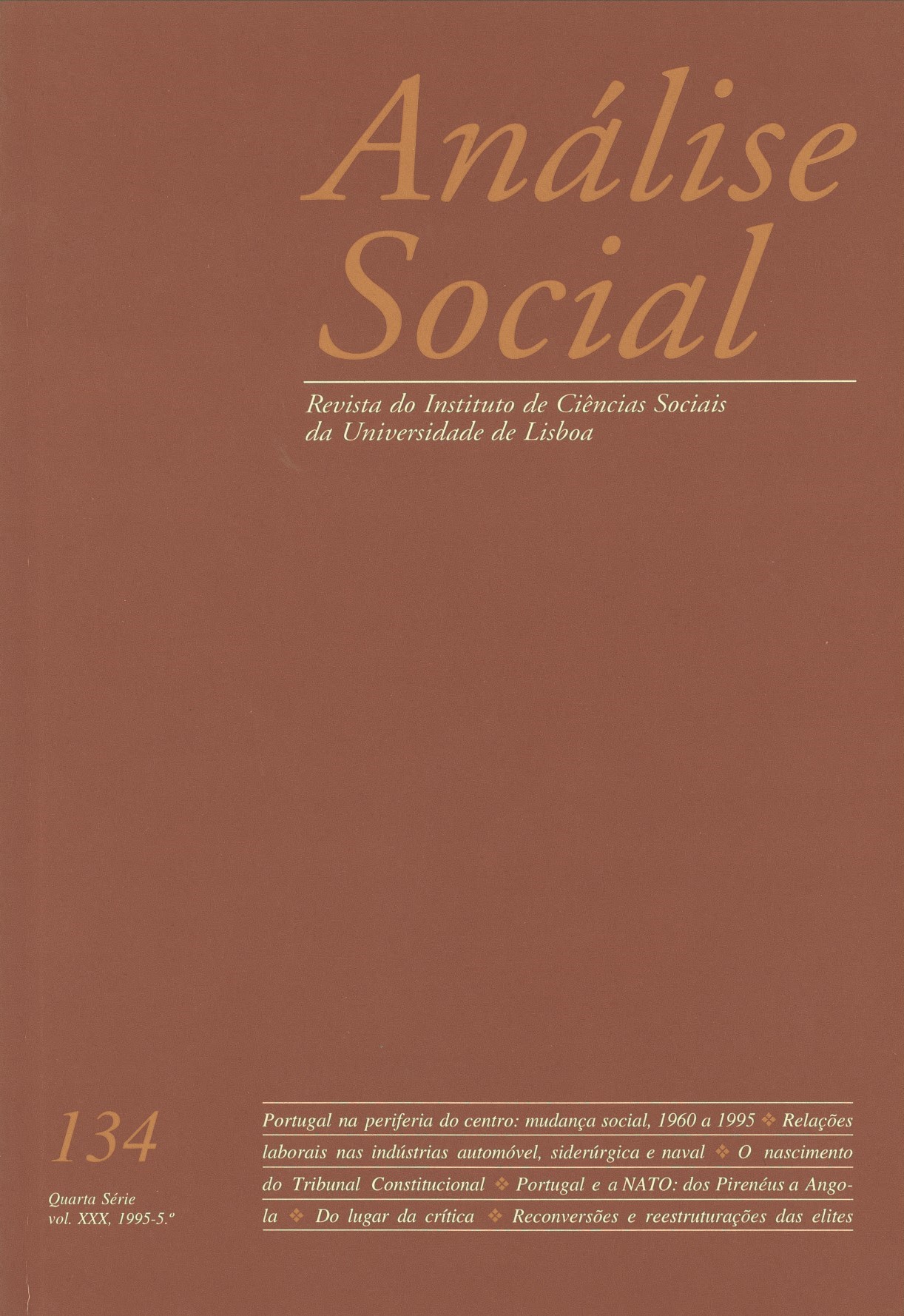Portugal e a NATO: dos Pirenéus a Angola
DOI:
https://doi.org/10.31447/AS00032573.1995134.04Palavras-chave:
Portugal, política externa, política de defesa portuguesa, consequências da adesão à NATOResumo
O artigo é uma adaptação do último capítulo do livro Portugal e a NATO: o Reencontro da Tradição Atlântica. Começa por se fazer uma panorâmica da visão sobre a evolução do sistema internacional que prevalecia em Portugal no pós-guerra e sobre as suas consequências em termos da política externa. Referem-se em seguida as razões da adesão à NATO e a sua importância para a evolução da política de defesa portuguesa desde 1949 até 1961. São detectadas três fases: uma primeira, pré-NATO, que punha a tónica na colaboração com a Espanha para a defesa dos Pirenéus e dos regimes peninsulares; uma segunda, correspondente ao período 1951-1959, onde se punha a tónica nos factores atlânticos; uma terceira, onde se colocava a tónica na defesa do império. Na parte final referem-se as consequências da NATO na evolução interna, compara-se a forma como Portugal viveu as duas últimas transições de sistema mundial e tecem-se algumas considerações teóricas sobre o papel da disfunção nacional.




